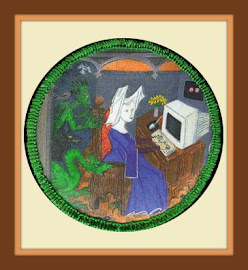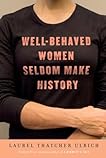When I was at the library last week, the just released book by Khalid Hosseini, A Thousand Splendid Suns, was sitting on the Best-Seller Express display, luring me to partake. Best Seller Express is a way for the library system to both make some money and make popular books more available to the reading public. You pay a small fee--$3--and you get the book for 10 days. Because of the fee, they are a lot easier to get a hold of. Going the standard route would mean placing myself at the end of an almost 1000 person waiting list. And, when I contributed a few bucks to the library, I got a free Best Seller Express coupon. Perfect! My only dilemma was rather I should get some other reading done first and check it out after our vacation, or just go for it now. On Friday when I was there with the kids, I saw it sitting there, all new and shiny. Then, I went back on Saturday to get it. It looked like a never opened book, pages crisp and binding tight. I spent the weekend reading it.
Reading this book right after Wild Swans, and boy, I am depressed about the state and status of women across the world. A Thousand Splendid Suns tells the story of two Afgahni women over the 30 year period of tumultuous historical changes. From pre-Soviet days to the Soviet invasion and occupation, then on to the Taliban and post-Taliban, fledging democracy days.
Mariam is the illegitimate daughter of a wealthy business man in Herat and a maid in his household. Her mother tragically commits suicide when Mariam is 15, and she is forced into a marriage with Rasheed, a shoemaker in Kabul who is three times her age. His only desire is for a son, and when Mariam is unable to carry a pregnancy to term, their marriage turns both cold and ugly.
After 18 years of marriage, some neighbors are killed by a bomb. Their surviving daughter, the smart, spirited, and defiant 14 year old Laila, is brought into Mariam and Rasheed's household, and soon, he decides to marry her. Her options are limited, and she agrees, mostly to provide a cover for her recently discovered pregnancy. In a spontaneous, clandestine, and rash burst of passion, she and her childhood friend Tariq consummate their relationship on the eve of Tariq and his family's departure to Pakistan.
As the story develops, the core becomes the friendship of Mariam and Laila as they stand together against the tyranny and abuse of Rasheed. His beatings are commonplace and brutal. The story is full of tragedy and shattered dreams. They plan an escape, but fail and are brought back to a full measure of Rasheed's rage.
The climax of the story occurs when Tariq returns (Rasheed has faked a witness to his death to prevent Laila from leaving), Rasheed erupts, and attempts to strangle Laila. In her defense, Mariam used a shovel as a weapon to fatally strike Rasheed. But, there is no escape from the long grasp of the Taliban, and she decides to confess her crime in order to save Laila. She is condemned to immediate execution. The portion of the book is my favorite. Mariam goes to her death in peace, grateful and happy for the chance to share love and friendship with Laila and her two children. In these relationships, she has been able to love and be loved, and she is content with that. It caused me to reflect on the way that my relationships with other women have been such a blessing and gift to me.
Laila is ever after haunted by the memory of Mariam. In her dreams, she hears the familiar hiss of the iron and the crisp snap of the sheets, but when she enters the room from where the sound is coming, there is no one there. After the downfall of the Taliban, she and Tariq return to Afghanistan and she goes to Mariam's home city of Herat to see when she lived and to pay homage to her. In so doing, she is able to connect with Mariam, provide a sort of reconciliation between Mariam and her estranged father, and to find a measure of hope for both herself and her country.
I liked this description from Publishers Weekly on Amazon:
Hosseini gives a forceful but nuanced portrait of a patriarchal despotism where women are agonizingly dependent on fathers, husbands and especially sons, the bearing of male children being their sole path to social status. His tale is a powerful, harrowing depiction of Afghanistan, but also a lyrical evocation of the lives and enduring hopes of its resilient characters.
My only regret is that I read it too fast.













No comments:
Post a Comment